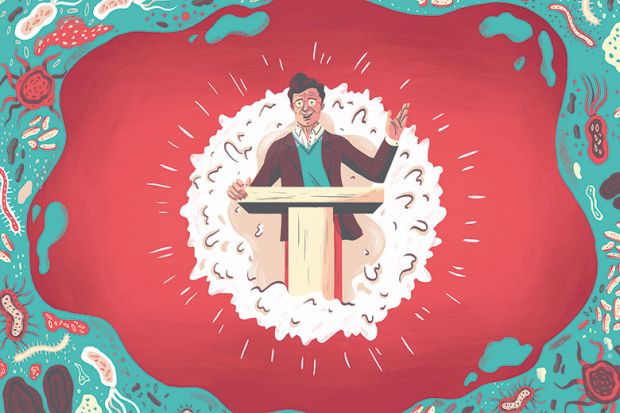The most important knowledge to be derived from the study of post-communist society in eastern Europe is that when it comes to building democracy the establishment of parliaments, political parties and a free press is the easy part.
If democracy is to thrive, it needs a certain level of education and critical thinking, and a moral climate of mutual respect among citizens. Democracy is not simply a political system; it is a culture of human relations.
I am convinced that it was the globalisation process that swept away communism. Regimes based on the censorship of ideas and rigid state-planned economies were unable to withstand the onslaught of competition and the free market of goods and ideas. But subsequent attempts to expand the system of economic and political liberalism globally have not resulted in the idyllic end of history. Today, we are witnessing a growing resistance to existing elites, which manifests itself as populism, nationalism, political extremism and terrorism.
This trend is accelerated by the rise of social media. This causes groups of people to become enclosed in “bubbles”, only consuming information that boosts their convictions and stirs their emotions, virtually isolated from any alternative or corrective vision of the world. This breaks down the space for public debate, the sine qua non of classical democracy.
Vladimir Putin’s authoritarian regime in Russia leads a systematic hybrid war against the West, in which widespread support for populist and extremist movements is an important component. In addition to financial support, the most important element of this war is the systematic dissemination of misinformation on internet networks, and this brainwashing focuses most closely on the people of the former Soviet bloc.
The more complicated the pluralistic world becomes, and the more the culture of public debate and the capacity for critical thinking decay, the more people take refuge in a primitive, black-and-white view of the world. Populist politicians have an excellent ability to express the thoughts of people who do not think.
They constantly attack the independent media and intellectuals, particularly “public intellectuals” who take a stand against prejudice and stereotypes in public opinion. Other favourite targets include “the Establishment”, the European Union – and, of course, the migrants, whom these elites supposedly let into Europe without considering the consequences for “ordinary people”. It is characteristic that the fear of Muslims and immigrants is greatest where there are practically no refugees and most people have never seen a Muslim.
Frustrated people, who tend towards political extremism, exist in every society – just as every human body contains a certain number of pathological cells. If the immune system functions properly, these cells are not dangerous. But if the immune system fails, the pathological cells proliferate. Moral and cultural institutions – such as universities, churches and serious media – are society’s immune system.
For a while, we thought that the crisis of confidence in democracy in central and eastern Europe was a result of the importance of civil society being overlooked when states were rebuilt after the fall of communism. This is certainly true, but “democracy fatigue” is also spreading in countries with lengthy unbroken traditions of democracy. Brexit and the election of Donald Trump have shown that even the Anglo-Saxon world is far from immune to populism and demagoguery.
In a society oriented much more towards the individual than towards social cohesiveness, the individual eventually feels lost and isolated. The weakening of the family in particular means that many people fail to create their own identity. As a result, they easily become attached to groups that offer a strong sense of group identity, often boosted by the demonisation of the outside world.
At university, I was taught by Jan Patočka, the key figure of the Czech philosophical scene of the 1960s and 1970s. Two years before his death, he gave a seminar on “the spiritual person and the intellectual”. He made a clear distinction between these two types, similar to Plato’s distinction between the sophist and the philosopher. The intellectual – the sophist – regards himself as wise, in possession of certain truths. In contrast, the spiritual person – the philosopher – is someone on a journey, a seeker after truth and wisdom. Such people have the capacity to overcome fear and to sacrifice themselves.
Patočka subsequently developed that theme in his last book, Heretical Essays in the Philosophy of History, in which he cites the experience of the fathers of the American and Soviet atom bombs, Robert Oppenheimer and Andrei Sakharov. Both scientists were aware of the destructive consequences of those weapons, and, as a result, clashed with the powers that be.
The overcoming of fear is fundamental to dissidents’ struggle with totalitarian power. Totalitarian power is based on fear, and fears nothing like people who, like Sakharov, overcome their fear and are capable of sacrifice.
I am deeply convinced that the most dangerous political phenomenon of our time, the new populism, is also based on fear. Therefore, if the academic community is to play its role in preserving society from lethal infection by populism, we must be prepared for conflicts with political power.
Perhaps this challenge for the university will prompt us to rediscover the original idea of the university: a community of teachers and pupils forming an inspirational environment for the intellectual, spiritual and moral development of personality.
Populists promise to make their nations great again. Universities should become islands of critical thinking and help to make the world think again.
Tomáš Halík is professor of sociology at Charles University in Prague, president of the Czech Christian Academy and a priest at St Salvator Church, Prague. This article is based on a keynote address he gave at Times Higher Education’s Research Excellence: New Europe Summit in April at Palacký University Olomouc, Czech Republic.
POSTSCRIPT:
Print headline: Waning immunity
Register to continue
Why register?
- Registration is free and only takes a moment
- Once registered, you can read 3 articles a month
- Sign up for our newsletter
Subscribe
Or subscribe for unlimited access to:
- Unlimited access to news, views, insights & reviews
- Digital editions
- Digital access to THE’s university and college rankings analysis
Already registered or a current subscriber? Login








